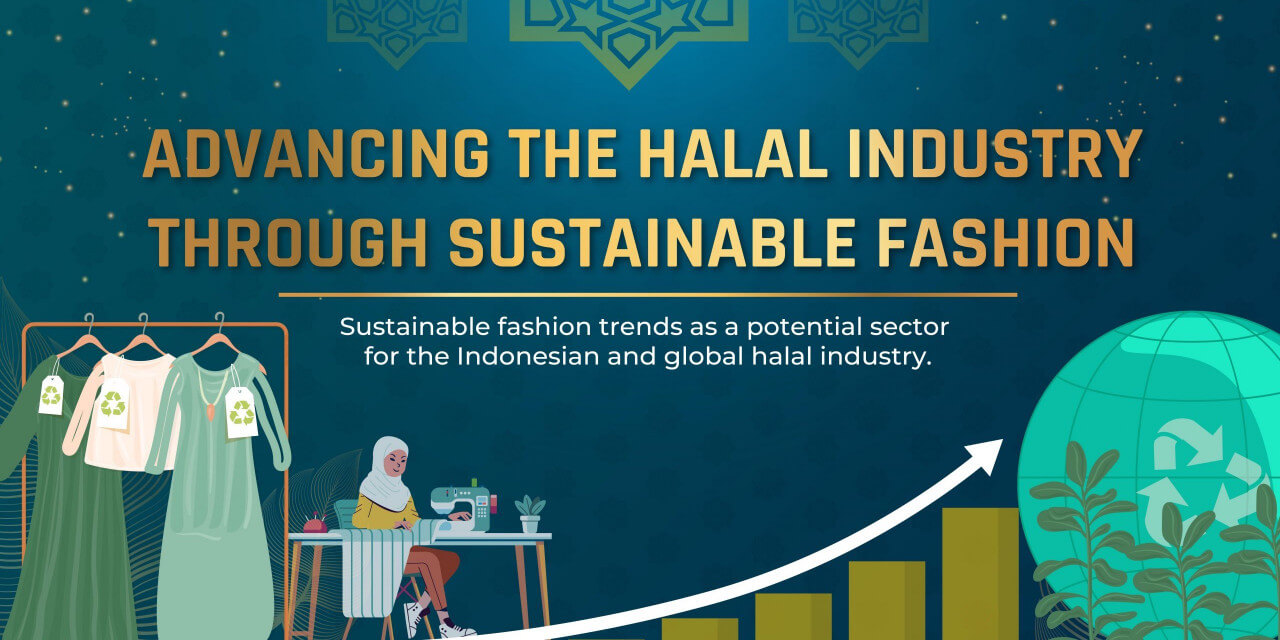Indonesia poised for growth in multibillion dollar modest fashion industry
Indonesian clothing designers and manufacturers are poised for growth in the global modest fashion segment, estimated to be worth some $361 billion and serving 2 billion consumers by 2024, according to participants at the Indonesia Sharia Economy Festival.
“Indonesia has a unique capacity to influence global aesthetics. They are familiar with the commercial synthesis concept,” said Carla Jones, anthropology professor at the University of Colorado, Boulder, USA.
“Local brand Wardah employs cosmopolitan references such as Korean Actress Ayana Jihye Moon. I’ve been following the global modest fashion trend over the last 10 years and I think Indonesia has a chance to grow globally,” Jones added.
Diana Yumanita, deputy director of sharia economic and finance department at the Indonesian Central Bank, said the bank will continue to support modest designers in terms of funding and training. She said Bank Indonesia believes the country can be a hub for global halal fashion.
“Seven percent of Indonesian GDP came from the creative economy. Of it, 50% came from fashion. We believe modest fashion is one of the engines for the growth of the sharia economy. The export of modest fashion products will eventually benefit our balance of payments and overall macroeconomic stability,” Yumanita said.
Local fashion designers and retailers have placed high hopes on the future of the industry and are already eyeing global markets.
Dian Wahyu Utami, owner of Dian Pelangi brand, said she plans to open a store in Rue Faubourg Saint-Honoré street in Paris, home to labels like Chanel, Christian Dior, Pierre Cardin, Versace and Burberry. “I heard that Indonesia's modest fashion is already as famous as K-pop out there. Modest market is the next emerging market and we need to get ready for a global market,” Utami said.
Istafiani Candarini, owner of Kamiidea brand, plans to open stores in Dubai and New York in the next five years and has already begun investing in digital marketing to reach consumers there. Meanwhile, Tuty Adib, owner of Bilqis brand, wants to bring more of the local wastra nusantara style to global markets such as London, Dubai, New York and Japan.
Jeny Tjahyawati, owner of Jeny brand is looking to to build a modest fashion store with a modern concept, similar to Japanese retailer Uniqlo. Nina Septiana, owner of Nina Nugroho brand says she wants to collaborate with Indonesia trainers association and Bank Indonesia to train MSMEs in terms of business mentality. “In order to have quality products, most MSMEs players lack four key factors: capital, recognition, network and infrastructure to scale up their production faster,” Septiana said.
Cynthia Mahendra, owner of Jawhara Syari brand, wants to expand her market to EU countries like Netherlands, in addition to its existing markets in Japan, Taiwan, and Malaysia. Khanan Shamlan, owner of Khanaan brand is also keen on going global by focusing on Indonesia local design and material. She believes in the digital era, it will be easier to reach foreign countries.
© SalaamGateway.com 2021 All Rights Reserved
